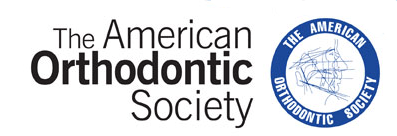During a visit with a family dentist, they will likely order dental X-rays and conduct a thorough dental examination. The examination allows the dentist to detect any oral health or cosmetic concerns that need addressing. Then the patient and the family dentist can put together an appropriate treatment and prevention plan.
The purpose of an oral examination from a family dentist
Dental examinations allow family dentists to detect signs of damage, decay, periodontal disease, orthodontic-related concerns, jaw complications or signs of early cancer. This review goes into depth on the signs of each potential concern.
Teeth damage and teeth decay
Teeth damage can result from a blow to the mouth, during a nasty fall or it could be the result of something more subtle such as the effects of teeth grinding at night. Teeth decay can also develop slowly without the patient noticing or experiencing discomforting symptoms. During an exam with a family dentist, signs of bruxism, broken teeth, teeth decay and more are checked for. The family dentist can detect early signs before they become worse and require more extensive treatment.
Signs of gingivitis or periodontitis
Gingivitis and periodontitis are the two main types of periodontal (gum) disease. Gingivitis is a less severe form of periodontal disease and can be treated through oral care changes, dietary changes and a dental cleaning from a family dentist. Periodontitis can develop if less severe gum disease goes on for too long, and then it may require a deep dental cleaning. Dental exams allow the family dentist to check for signs of gum disease so that treatment can be administered in the earliest stage possible when necessary.
Orthodontic-related concerns
During a dental exam, family dentists also check the alignment of the patient’s teeth and jaw. This checks for any bite complications such as an underbite, overbite, crossbite, etc. They also check for misalignments due to crooked teeth, overcrowding, gaps between teeth and more. Based on their findings, the family dentist can make treatment recommendations and explain all available options.
Jaw complications related to oral health
Jaw complications such as TMJ disorder are more common than many patients think. Family dentists check for signs of jaw complications during a dental exam. Signs may include a stiff or locked jaw, a clicking sound when moving the jaw and pain. Early detection of jaw complications allows for more effective and less invasive treatment.
Early signs of oral cancer
Patients may benefit from a more extensive oral cancer screening, but family dentists also check for early signs of oral cancer during a dental exam. If they notice any concerns, they may recommend additional testing to determine the official diagnosis of the concern in question.
Schedule an oral examination with our friendly dental team today
Individuals can schedule a visit with our family dentistry by calling us or sending us a message. Our friendly team can answer questions, conduct a thorough oral examination to determine if there are any oral health issues and help you meet oral care and cosmetic treatment goals.
Are you considering a family dentist in the Houston area? Get more information at https://dentisthouston4smile.com.
Check out what others are saying about our dental services on Yelp: Family Dentist in Houston, TX.
Related Posts
Common Treatments From a Family Dentist
Family dentists typically offer a wide range of services, addressing oral health, cosmetic and functional concerns. This review highlights the services that you can expect your local family dentist to offer you …
Why a Family Dentist Requires Regular Cleanings
Your family dentist reiterates the importance of regular cleanings for a reason. For optimal oral health, daily oral care, and regular visits to the dental office are crucial. You may think …
Family Dentist Tips for Bad Breath Prevention
Family dentists are great resources to utilize when looking to prevent bad breath. They are skilled dental professionals who have undergone extensive training to diagnose, manage and treat bad breath, which …
Family Dentist FAQ: How Dangerous is a Cavity?
Family dentists are certified general dentists who specialize in treating patients of all ages, including children and adults. Because family dentists focus their efforts on general dentistry care, they are often tasked with diagnosing and …






